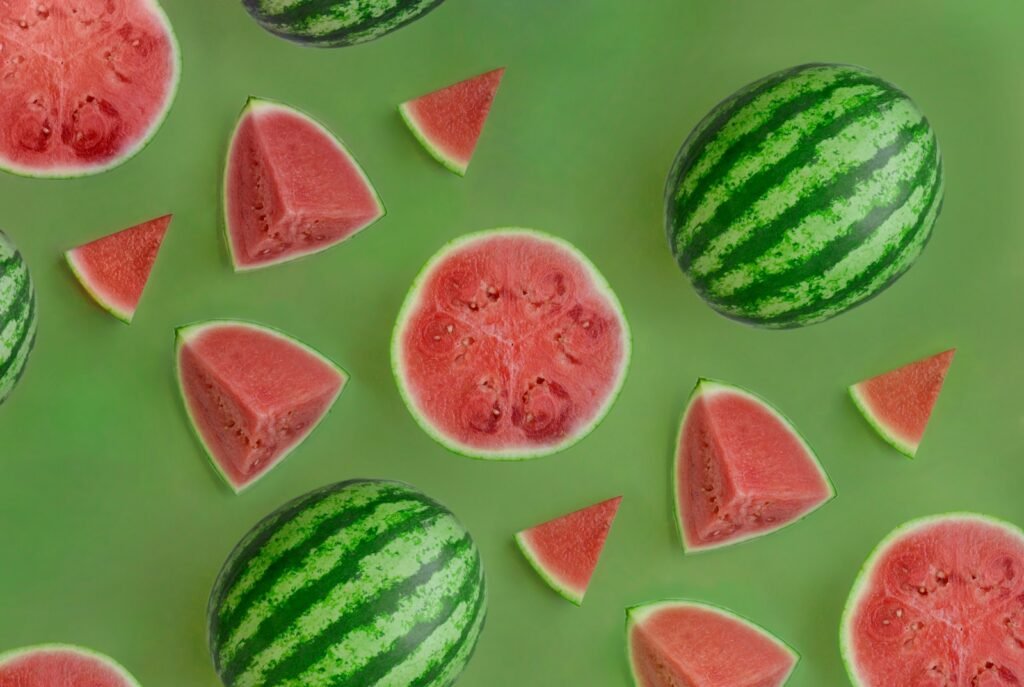Jet lag can make travel tough. Feeling tired and out of sync when you cross time zones is no fun. But did you know the foods you eat can help?
Eating the right foods can ease jet lag symptoms and help reset your body clock faster. Some snacks and meals work better than others to get you back on track.
You might be surprised by which foods can help or hurt when dealing with jet lag.
Simple changes to what you eat and drink can make a big difference in how you feel after a long flight.
Let’s look at some tasty options to try on your next trip across time zones.
Understanding Jet Lag and the Circadian Rhythm
Jet lag affects many travelers, messing up their sleep and making them feel off. Your body’s internal clock plays a big role in this.
What Is Jet Lag?
Jet lag happens when you fly across time zones. Your body gets confused because the new time doesn’t match its usual schedule. You might feel tired during the day and wide awake at night.
Common signs of jet lag include:
- Trouble sleeping
- Feeling sleepy in the daytime
- Upset stomach
- Mood changes
- Hard time focusing
Jet lag can last for several days. How long it lasts often depends on how many time zones you cross.
The Role of Circadian Rhythm in Jet Lag
Your circadian rhythm is like an internal clock. It tells your body when to sleep, eat, and be active. This rhythm is set by light and dark cycles.
When you travel to a new time zone, your body clock is still on your home time. It takes time for your rhythm to adjust to the new schedule.
Your circadian rhythm affects many body functions:
- Sleep-wake cycle
- Hormone release
- Body temperature
- Digestion
Light exposure is key to resetting your body clock. Getting sunlight at the right times in your new location can help you adjust faster.
Nutrition Strategies to Combat Jet Lag
Eating the right foods can help your body adjust to a new time zone. The following tips focus on what to eat and drink to ease jet lag symptoms and get you back on track faster.
Importance of Hydration
Staying hydrated is key to fighting jet lag. Planes have dry air, which can leave you dehydrated. This makes jet lag worse.
Drink water before, during, and after your flight. Aim for 8 ounces every hour you’re in the air.
Avoid alcohol and caffeine on the plane. They can make dehydration worse.
Instead, try herbal tea or plain water. If you don’t like plain water, add a slice of lemon or lime for flavor.
When you land, keep drinking water. Your body needs extra fluids to adjust to the new time zone.
Carry a water bottle with you and sip often.
Foods Rich in Magnesium and Potassium
Magnesium and potassium can help your body adjust its sleep-wake cycle. These minerals support healthy sleep patterns.
Bananas are a great source of both. They’re easy to pack and eat on the go. Other good choices include:
- Spinach
- Almonds
- Avocados
- Pumpkin seeds
Try to eat these foods in the days before and after your trip. They can help reset your body clock and reduce jet lag symptoms.
Foods High in Water Content
Eating foods with high water content can help you stay hydrated. This is good for fighting jet lag. Some top choices are:
- Watermelon (92% water)
- Cucumbers (95% water)
- Strawberries (91% water)
- Lettuce (95% water)
These foods give you water and some nutrients. They’re light and easy to digest, which is good when your body is adjusting to a new schedule.
Pack some cut-up fruits or veggies for your flight. They make great snacks and help keep you hydrated.
Antioxidant-Rich Foods
Antioxidants can help your body deal with the stress of travel. They fight inflammation and boost your immune system. This can help you feel better as you adjust to a new time zone.
Some good antioxidant-rich foods are:
- Berries (blueberries, strawberries, raspberries)
- Dark chocolate
- Green tea
- Nuts (especially walnuts and pecans)
Try to eat these foods before, during, and after your trip. They can help your body cope with the changes and reduce jet lag symptoms.
Green tea is a good choice. It has some caffeine to help you stay alert, plus lots of antioxidants. Just don’t drink it too close to bedtime.
Sleep Management Techniques for Travelers
Smart sleep habits can help you beat jet lag. These tips will help you adjust your sleep and use light to your advantage when traveling.
Adjusting Your Sleep Schedule Before Travel
Start changing your sleep times before you leave. If you’re going east, go to bed and wake up earlier. For westward trips, do the opposite. Shift your schedule by 30 minutes each day for a few days before your trip.
Set alarms to keep you on track. Eat meals at times that match your destination. This helps your body clock adjust faster.
Try to sleep on the plane if it’s nighttime at your destination. Use earplugs, an eye mask, and a neck pillow to get comfy.
Natural Sleep Aids and Light Exposure
Light exposure is key for resetting your body clock. When you arrive, get outside in the sun if it’s daytime. This helps boost your serotonin and adjust your sleep cycle.
At night, keep lights low and avoid screens. This helps your body make melatonin, the sleep hormone.
Some travelers find melatonin supplements helpful, but talk to your doctor first.
Lavender, chamomile tea, and magnesium can help you relax. If you have trouble sleeping, don’t toss and turn. Get up and do a calm activity until you feel sleepy.
Lifestyle Tips for Reducing Jet Lag
Changing your habits can help ease jet lag symptoms. These tips focus on what you drink and how you move during travel.
Avoiding Alcohol and Caffeine
Skip the in-flight cocktail and coffee. Alcohol can make you dehydrated and mess up your sleep. Caffeine might keep you awake when you need to rest.
Drink water instead. Airplane cabins are very dry, so you need extra fluids. Bring an empty water bottle to fill after security.
If you usually drink coffee or tea, cut back slowly before your trip. This helps avoid caffeine withdrawal headaches.
Try herbal tea or decaf if you want a hot drink. These won’t mess with your sleep as much as regular coffee or tea.
Staying Active During Long-Distance Travel
Move around during your flight. This helps fight travel fatigue and keeps your blood flowing.
Get up and walk the aisle every hour or two. Do some simple stretches in your seat.
Try ankle rolls and shoulder shrugs. These are easy to do without bothering other passengers.
Wear comfortable shoes that you can slip on and off. This makes it easier to move around.
When you arrive, take a short walk outside. The fresh air and natural light help reset your body clock.
Frequently Asked Questions
Jet lag can be tough, but certain foods and drinks may help ease your symptoms. Let’s explore some common questions about using nutrition to beat jet lag.
What are the best foods to eat to help overcome jet lag quickly?
Bananas are a great choice to help you adjust to a new time zone. They contain magnesium and potassium, which can help you relax and sleep better. Cherries are another good option. They have melatonin, which helps regulate your sleep cycle.
Is there a particular diet that can help alleviate the symptoms of jet lag?
A light, balanced diet can help your body adapt faster. Try to eat meals at the local time of your destination. This helps your body clock adjust.
Stick to easy-to-digest foods and avoid heavy, fatty meals that might upset your stomach.
How can certain drinks contribute to reducing jet lag?
Water is your best friend when fighting jet lag. Stay hydrated to help your body adjust. Coffee can give you a boost if you need to stay awake, but don’t overdo it. Too much caffeine can make it hard to sleep later.
Are there vitamins or supplements that aid in jet lag recovery?
Some people find melatonin supplements helpful. But did you know some foods naturally contain melatonin? Cherries are a good source. B vitamins may also help your body adjust, so look for foods rich in these nutrients.
What strategies involving food can help beat jet lag effectively?
Timing is key. Try to eat meals at the same time as the locals in your new time zone. This helps reset your body clock.
Also, avoid big meals close to bedtime. Light snacks are better if you’re hungry late at night.
Can fruit consumption impact the severity of jet lag?
Yes, fruits can help! Bananas and cherries are great choices.
Kiwis are also good – they have serotonin which can help you sleep better.
Oranges and other citrus fruits give you a vitamin C boost, which might help you feel more energetic.


